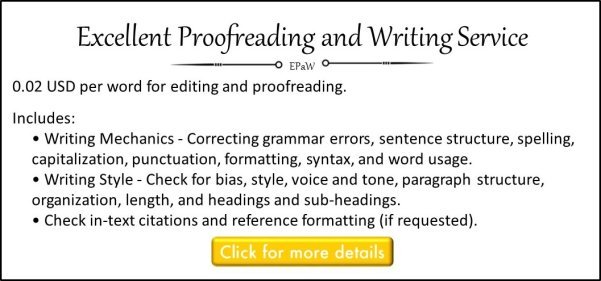Thesis Writing
A thesis or dissertation will often be the longest piece of writing that you've to ever produce. So many students find thesis writing a daunting prospect. But with a little preparation it's easy to turn it into a series of smaller, easier to complete tasks.
As with all academic writing a bit of planning will help you use your time well and make sure you don’t forget anything important during the dissertation writing process.

Most students don’t know how to write a dissertation or much about writing a good thesis when they first start their study but they learn these skills quite fast. This section of the site can help you do that even faster.
Not all of the writing involved with thesis writing will happen at the end of your study. Some parts you’ll have to write when you first start, such as the initial literature review and dissertation proposal.
If you’re considering getting a custom dissertation written I would suggest that you don’t. As I’ve explained on the page it’s a form of cheating and something that you shouldn’t do.

Organization of a Thesis
Usually a thesis will be split into several chapters. Before you start to write your thesis it’s a very good idea to plan the dissertation outline so that you’ll know what you want to say in each section. Generally there are two ways in which you can organise the material in your thesis.
The first way is to follow a pattern similar to the IMAD structure of writing a lab report or scientific paper, only longer. Here you would have:
- An introduction chapter
- A literature review
- A materials and methods chapter
- A results chapter
- A discussion chapter
- A conclusions chapter – a thesis is long enough and detailed enough that a separate, short, chapter of conclusions often draws the work together well at the end.
The second way would be to have separate chapters for each part or subset of experiments. Here you would have:
- A general introduction chapter
- A general literature review
- Several chapters, each describing one part of the experiments, where each would contain:
- Introduction section
- Literature review section
- Materials and methods section
- Results section
- Discussion section
- Conclusion section
- A general conclusion chapter drawing together all the separate parts of the work
In addition both types of organisation would also have:
Before the introduction:
- A title page – usually containing the title of the work, your name, the faculty and/or department where you study and your university’s name.
- An abstract
- A list of contents
- A list of figures
- A list of tables
After the conclusion:
- The acknowledgements
- The reference list
- Appendixes (optional only if needed)

Writing a Thesis
A thesis is a large document so the only way to write it well is to plan, revise your plan and then plan some more. You should start to plan before you've even started your experiments. All your experiments should form one overall narrative drawing your readers to the conclusion. So they need to be well thought out and linked together. This will defiantly help during your thesis writing.
As with all academic writing you should follow the advice given in the academic writing process section. As you're doing your own experimental research it's even more important to do thorough research.
You need to do this for two reasons, firstly you need to understand the subject area extremely well to be able to plan your experiments and secondly you'll need to write a literature review.

Literature Review
The literature review, which will contain a summary of all the information that is relevant to your work, is the first part to be written during the thesis writing process.
This should be kept up to date, throughout the time when you are doing your experiments. It's often written first and will need to be updated as you work so that it's still current when you're submitting your thesis.
This should also be the last part to be updated before submitting, so you'll be able to include a reference to any useful paper, even if it was published just a few days before you submit.

Introduction
The introduction should explain why your topic of research is important, what you hope to achieve doing the research and include a summary of the main research relating to the topic (not as detailed as the literature review).
At the end of the introduction you should include a section containing the specific aims of your experiments.
The introduction and the literature reviews can be treated as essays when writing them, use similar techniques and get them to an almost final stage before moving on to the next part of the thesis writing process.

Materials and Methods
For the materials and methods section you'll need to keep detailed notes of everything you did so that you're able to write them up fully. If you've time you can write this section as you're doing the experimental work.
It'll then just need editing when you've finished, so that they're in the same order as the results you present in the results section.
For more help with the materials and methods section of thesis writing see the page about writing the dissertation methodology.

Results
The results section will often take the greatest time to write after you've finished the experiments, that's as long as you've been organised and already nearly finished the introduction, literature review and methods.
You'll need to analyse your results (remember to go back and explain what you did in the methods section), present them in a suitable form, as tables or figures, and then describe them in the text of the results section. Remember no discussion here just stick to the facts.

Discussion
You should've been making notes about how you wanted to discuss the results and what the results mean as you write the results section, so the discussion should be fairly straight forward to write.
You should've a plan of what you would like to say and you just need to write it. Remember to discuss your results in relation to the literature. You need to backup what you say by referring to source literature.

Conclusions
The conclusion section should summarise the main points from the discussion and leave your reader with the main take home message from your research.
In this section, do not discuss the results more, just draw all the parts of the research together and show how you've achieved the aims, as you set them out in the aims section.

Finalizing your Thesis
Any thesis or dissertation is a very important document so leave plenty of time for the finalizing stage, the thesis proofreading stage, of the thesis writing process where it'll be proofread to make sure the style is consistent and there are no spelling or grammatical errors in the final copy. If you're thinking of using a dissertation editing service make sure you do a full check to make sure you'll get what you need.
If you need help to proofread your thesis I have extensive experience of thesis writing, reading, correcting and improving before submission, both as a proofreader and when I submitted my own PhD thesis. See the section on The Excellent Proofreading and Writing Service for Your Documents for details about this.
For any help you can visit the Excellent Proofreading and Writing Facebook page. I’m happy to answer your questions or offer advice on this page.

Return to Excellent Proofreading and Writing Homepage from Thesis Writing



By Jolyon Dodgson, copyright © 2011-2020.
Excellent-Proofreading-and-Writing.com - Proofreading and writing help for excellent first impressions.





New! Comments
Have your say about what you just read! Leave me a comment in the box below.